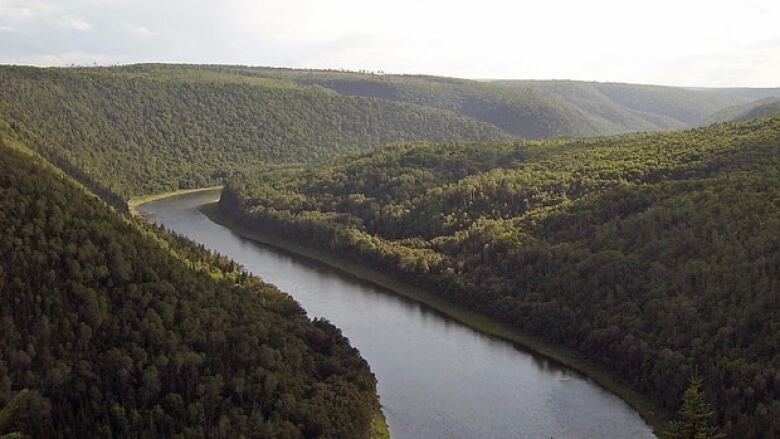N.B. ranks 2nd-last in Canada in efforts to protect nature, group says
Canadian Parks and Wilderness Society wants province to protect at least 10 per cent of its land and water

New Brunswick ranks second-last in the country in protection ofland and water, the Canadian Parks and Wilderness Society says in its annual report on environmental efforts.
The report calls Canada a "laggard," too, saying its commitment to protecting nature is last among G7 countries.
The report ranks all the provinces and territories for their commitment and says New Brunswick is "well behind" most, with only 4.7 per cent of land and water protected.
"The government hasn'tmade any commitment to establish new protected areas, unlike most of the other provinces and territories that are working on a plan," said Roberta Clowater, executive director of the New Brunswick chapter of the charity, which calls itself CPAWS.

Provinceswith similar conservation issues and landscapes, including Nova Scotia, have protected well over 12 per cent, she said.
"CPAWS would like to see the province at least make a commitment to protect 10 per cent of the province, which is the national average," said Clowater.
The report specificallymentionsNew BrunswickRestigoucheRiver watershed, saying the government could create a world-class tourism destination there.
"CPAWSthinks theRestigoucheRiver Waterway is the most immediate opportunity to add a new park or protected area in New Brunswick in the near term."
Not even three per cent of the New Brunswickportion of the watershed is protected, the report said, "and industrial development is eating away at the region's wild forests and rivers year by year."
Pathway 2020
The idea's been discussed for the past four to five years with local community groups and different government departments,Clowatersaid.
In 2010, most countries, including Canada, made a commitment under the United Nations Convention on Biological Diversity 2010 to protect at least 17 per cent of their land, inland waters and improve the quality of protected areas by 2020.
"This is the early opportunity to get in there and do this before this 2020 deadline that Canada has committed to comes up to us," saidClowater.
Hbert-Dalysaid people are just now starting to realize nature is a priority.
"It is in fact key to our survival and if we do it right, Canadians can be leaders in the world rather than the laggards we currently are," he said.
"I think it's a lack of political will," ricHbert-Daly, the national director said,
"I think that there's a real problem in terms of being able to get governments to pay attention the way they need to, around this file."
Clowater and environmentalgroups have been asking the provincial government to set aside large tracts of land and protect them from development since 2014, but their work has been unsuccessful.
Industry pressure
Forestry and mining industries have made strong efforts to discourage protecting areas of New Brunswick, Clowater said.
"Some big actors in the province hold a lot of political influence," she said. 'I would say the Irvings are not alone in pushing against protected areas."
She said the jobs argument for letting the environment go shouldn't hold the power it does. The resource industry is becoming less of a traditional employer in the province.
"In fact, if you look at the tourism sector as a whole, it employs more people than agriculture, fisheries."
With files from Information Morning Fredericton












_(720p).jpg)


 OFFICIAL HD MUSIC VIDEO.jpg)
.jpg)



























































































